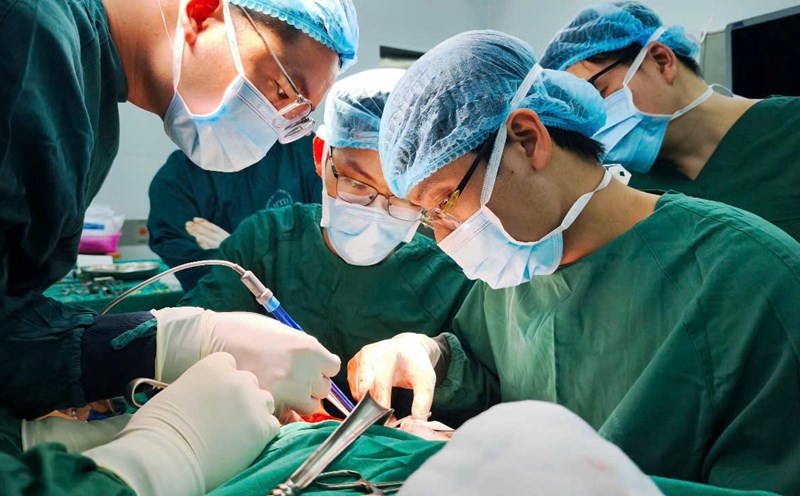Patient P.V.D, 63 years old, from Ninh Binh, was admitted to the 108 Central Military Hospital when he was consciously drowsy, had unresponsive calls, and had difficulty breathing. The left leg of the body has a noticeable abscess that kills the face first, causing many yellow and foul discharge, and many bruises in the skin.
Pre-existing history shows that the patient had previously self-medicated boils on the toes. Bacteria have entered the bloodstream, forming many abscesses in the body.
The blood culture test result was positive for yellow platelets a highly toxic bacteria. The patient had motor abscesses on both sides of the pelvic ligament, inflammation that destroyed the disc vertebrae and meningitis. These are all serious complications, endangering life if not detected and treated promptly.
Doctors have conducted intensive treatment. After 20 days, the patient was alert, had good contact, had no fever, and the wound on the feet and calves was gradually recovering.
Major Dr. Nguyen Thi Hiep - Department of Gastroenterology (108 Central Military Hospital) said that staphylococcus aureus is a highly toxic bacteria that can easily cause disease when entering the body through open wounds. Sepsis caused by yellow blood cell deposits is a serious infection that can be life-threatening due to rapid progression, resistance to many antibiotics and often causes abscesses in many organs, causing prolonged and expensive treatment.
In the community, yellow blood cell deposits are likely to cause sepsis in people with skin wounds, insect bites, burns, eczema or poor resistance such as diabetics, people with immunodeficiency, chemotherapy - radiotherapy, or drug addicts.
"Hemorrhagic inflammation caused by yellow blood cell deposits can cause: Infectious scoliosis: bacteria attack the heart valve, causing valve perforation, heart failure, and even causing pulmonary or brain blockage. Traffic congestion and multiple organ damage: found in the lungs, brain, bones, joints and muscles. Discus spine destruction inflammation: causes back pain, limited mobility, and loss of spine stability. Infection shock and multiple organ failure have a very high mortality rate," Major Nguyen Thi Hiep advised.
Patients may experience high fever, chills, fatigue, shortness of breath, joint pain, and swollen skin. If these signs occur in people with boils or skin wounds, it is necessary to consider the risk of sepsis due to yellow blood cell deposition and see a doctor immediately.







